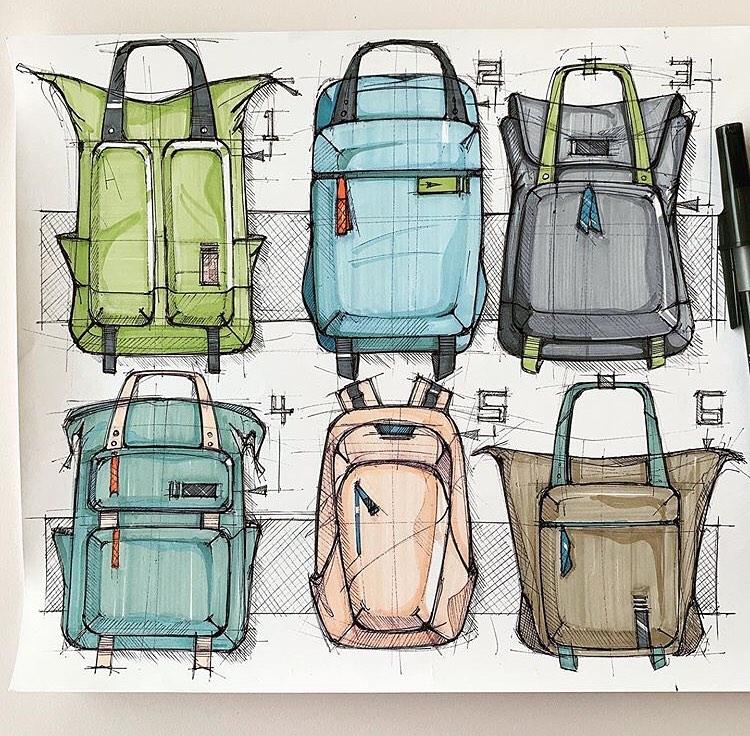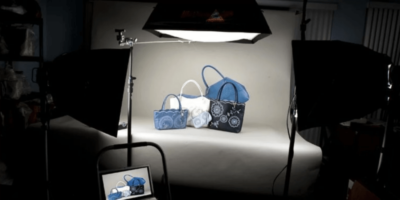Once you’ve conceptualized your new design, and created a prototype, your product is ready for manufacturing in higher quantities. Now it’s time to choose the right manufacturer as the last step of the process.
The type of bag manufacturer you require depends on your product’s unique features, competitive advantages, and who your target customer is. If your target segment is price conscious and buys solely based on low cost, you must find a low-cost producer so you can compete within this niche.
If your targeted segment is not too price-sensitive, you want to find a producer that can develop a product that your customers will perceive as higher quality compared to the price.
Once you have done some research and narrowed down the best potential manufacturing partners for your business, you want to compile a list of questions and have them ready at hand.
Take notes so you not only don’t forget to ask everything you want to ask but so that you don’t forget how each supplier responded, this will help when making a final decision.
If you’re looking for a supplier for your business we can help, at Solasta we offer leading class solutions that are guaranteed to satisfy both your needs and your customer’s wants. To learn more feel free to contact us with a list of your questions ready to go!
1. What types of companies do you typically work with?
You’ll want to choose a manufacturer who works with companies similar to yours. When searching for the most ideal supplier for your business, you always need to ask them about the type of businesses they have previously worked with.
If you’re a start-up brand, try to find a bag manufacturer or supplier that specializes in servicing start-up businesses, as you will want a partner that is familiar with the particular challenges that start-ups face when trying to build their businesses.
2. Do you offer help with design?
A supplier may provide technical help and support for product development, particularly in the early stages of design and manufacturing. If you’re just starting your fashion accessories label or you’re new to design, it can feel overwhelming given the options of fabrics, techniques, details and processes to choose from.
If this is the case, make sure you’re choosing a supplier who takes the time and effort to understand your vision and designs thoroughly, and can guide you through the entire process.
3. What is your minimum order quantity (MOQ)?
Because some suppliers won’t even consider orders less than several hundred units per style, it’s important to ask manufacturers what their minimum order quantity is at the beginning of the interview process, so you don’t waste your time or theirs.
Don’t forget to ask what type of volumes will trigger a potential reduction in cost, as price breaks could be the deciding factor to making the best decision for your business, especially when thinking of a more long-term manufacturing partner.
4. How much do you charge for samples?
Although there is no way of knowing exactly what samples will cost until after the discovery process and understanding your requirements regarding design, materials, and finishes. After sharing your requirements, any experienced supplier should be able to give you a ballpark figure or a price range that your particular product will land between.
Don’t expect an answer right there on the spot, as whoever you speak to will most likely need to discuss your project with other team members involved in the development process before giving you an answer.
Note that samples almost always cost more than a single item costs when ordering in bulk production. This is because of many factors, including but not limited to material sourcing, pattern drafting, and how many hours it takes to develop a quality product that not only looks great but is production-ready for bulk orders as well.
5. How do you handle delays?
You need to know of any delays straight away so make sure that your manufacturer is clear on what you expect if any delays occur. The factory should always find a solution in avoiding delays, but also be transparent when issues that may cause any delays to arise.
You may have customers waiting for orders they have already placed or they are looking forward to the launch of a new product that you have been promoting, so make sure you communicate what exactly your supplier is helping you to achieve.
Your contract should include a penalty clause to make up for any lost profits if you’re unable to fulfill your customers’ orders because of circumstances out of your control. Just know that unfortunately, when the quantity ordered is low, you’ll have less bargaining power for a penalty clause.
If you’ve gotten this far into the questions and still aren’t happy with what the supplier has to say then it may be time to look elsewhere. At Solasta we are happy to answer all of your questions and come to an agreement that will satisfy all your wants. To learn more, reach out to us, we’d love to answer all your questions.
6. How can you respond to changes in demand?
Can you help me grow?
Your business’s ability to respond to increases in demand is important to its ability to compete. For this reason, the capability of your supplier to cope with dynamic market demand is an essential element in your operations strategy, and vendors who think ahead, in the long run, can become your best partners.
As demand for your products grows, and your business is expanding, it will be helpful to find a manufacturer who wants to grow with you. If you are working with a smaller manufacturer, have them weigh in on how they can ramp up to accommodate your growing business is not only helpful but could save you a lot of time and money from having to search for a larger vendor in the future.
How will they manage an influx in orders? Can they hire additional staff at brief notice? If not, can they outsource part of the production until they can reconfigure their workspace with enough equipment and staff?
7. What are my options for custom materials?
If you don’t already have all the materials sourced you want to use, you will need to inquire if your bag manufacturer can source and supply the specific materials that you envision they will make your designs from. Can the supplier accommodate the shape and size of the product you have designed?
Do they have options regarding hardware, custom embroidery, digital printing, labels, and dying? If they happen to not have what you require in-house, then you should ask what is the company’s ability to source new components for your designs.
At Solasta we offer a range of materials that are used to perfectly meet your needs, for more information & to see just what we have to offer check out our Materials Page!
8. What happens if I’m unhappy with the final product?
Before committing to a manufacturer, make sure you’re aware of what procedures and policies are in place if you experience any issues with your products coming from bulk production. What’s their return policy? How many days after receiving your delivery do you have to make a claim on defective merchandise or any order mistakes?
Understanding the manufacturer’s refund and returns policy is key and highly recommended before placing an order. Request preproduction of the last samples of each of your products so you can give final approval, and so that your manufacturer has an exact copy of what he needs to deliver to ensure that the goods you’ll receive are in line with your expectations.
9. What are your shipping terms?
Understanding how the products will get to you from your manufacturer is key before committing to one. Factories usually offer different shipping solutions, and although this rarely happens, sometimes you might need to organize the shipping yourself, so make sure you are clear who handles what and be up to date on all customs and duties fees that could arise when importing.
Look into the shipping acronyms, such as DDP (delivery duty paid), DAP (delivery at place), FOB (free on board) and EXW (Ex Works) to better understand a potential supplier’s offer and make the right decision for your business.
It’s all about finding a good fit from the beginning.
Bring a standard list of expectations into every manufacturer’s meeting and know what your trade-offs and your priorities are. Ultimately, it’s important to understand how your company and the manufacturer will both benefit from the partnership. Ask questions that revolve around creating clarity and alignment regarding expectations.
At Solasta we are committed to helping you achieve your goals, if you are looking for a supplier contact us and see just what we can do for you. To see some of our capabilities and unique craftsmanship check out our Services Page to learn more.






